Project doubles uncommon plants around reservoir
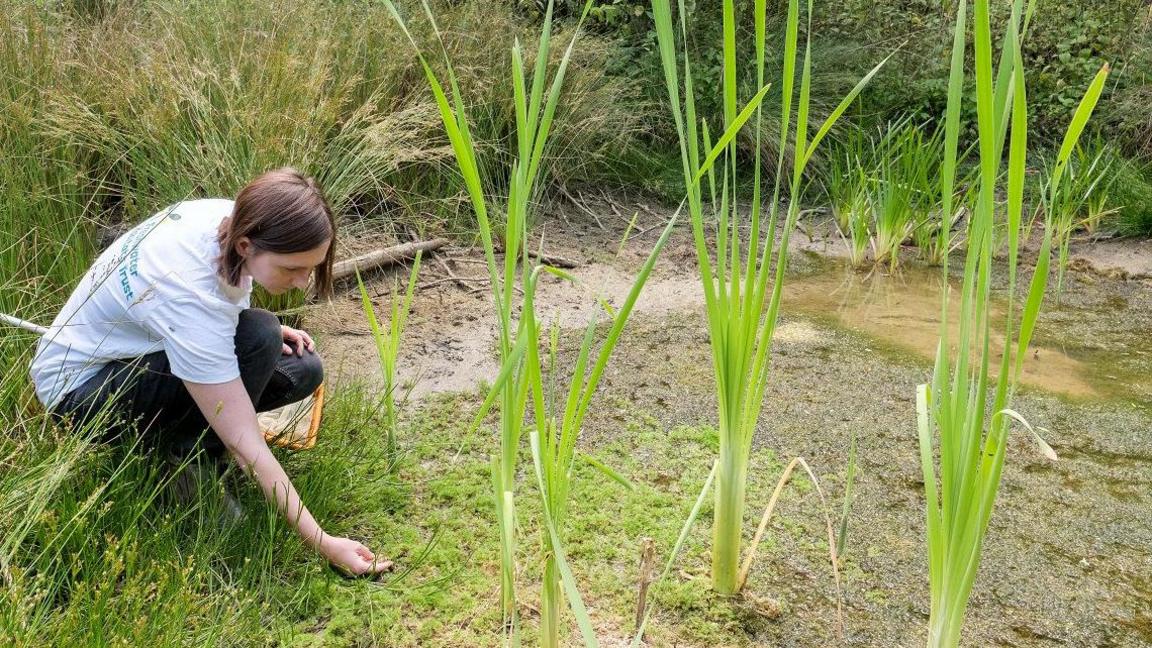
Hannah Worker from the Freshwater Habitats Trust said freshwater species were disappearing "at an alarming rate"
- Published
Conservationists have said the number of uncommon plant species around a reservoir doubled in just two years thanks to a pond creation project.
The Freshwater Habitats Trust (FHT) also revealed wetland plant species across the whole landscape around Pitsford Reservoir in Northamptonshire were up by nearly a quarter.
A total of 22 new clean water ponds have been created and 10 existing ponds have been managed.
According to the FHT, the nationally-scarce clustered stonewort has been recorded for the first time in the region.
A total of 21 landowners were involved in the project, including 15 farmers.
One of them, Will Shemilt, said: "If you own land, you want to look after it, and working with nature always pays off.
"Build the right habitat and wildlife will come - and with the new ponds, this has happened really quickly."
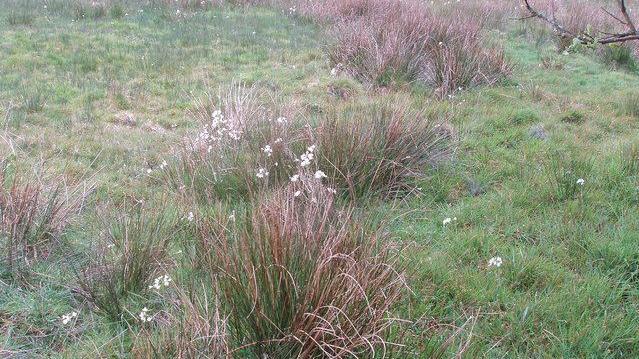
Marsh willowherb was one of the uncommon species found two years into the project
The landscape around the reservoir was surveyed in 2021, before the project began, and 71 different species of wetland plants were found in ponds, streams and ditches.
A total of 17 of them were uncommon species.
By 2024, new clean water ponds had been built and the number of species had increased to 84.
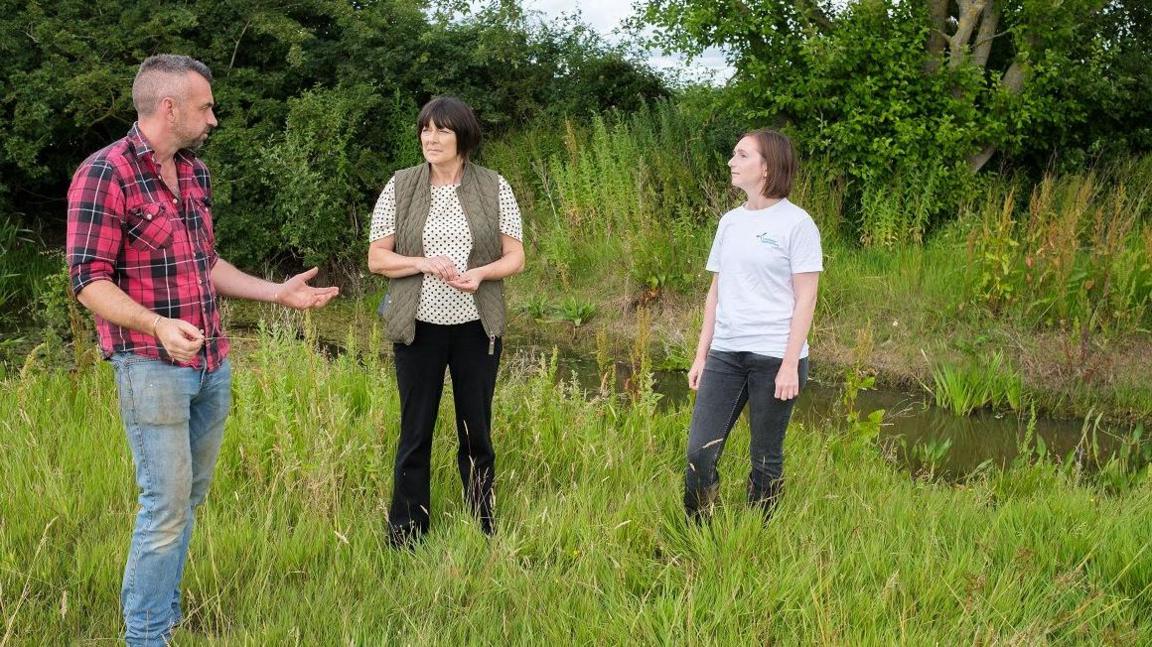
Farmer Will Shemilt (left) said working with nature "always pays off". He is with Kim Hemmings from Anglian Water (centre) and programme manager Hannah Worker
The FHT said: "Uncommon species found in the most recent survey included marsh willowherb, blunt-flowered rush and the nationally-scarce clustered stonewort, which was recorded for the first time in the region."
The trust added that establishing new ponds was the most effective way of supporting new species.
Alongside the new ponds, work has been done to create natural flood management features such as flood storage basins and leaky dams which prevent sediment running off into the surrounding land.
The FHT's programme manager, Hannah Worker, said: "It's been so exciting to see such an amazing increase in freshwater species – including uncommon plants returning to the area - within just two years.
"We're losing freshwater species at an alarming rate so it is vital that we work together and take practical steps that we know will make a difference."
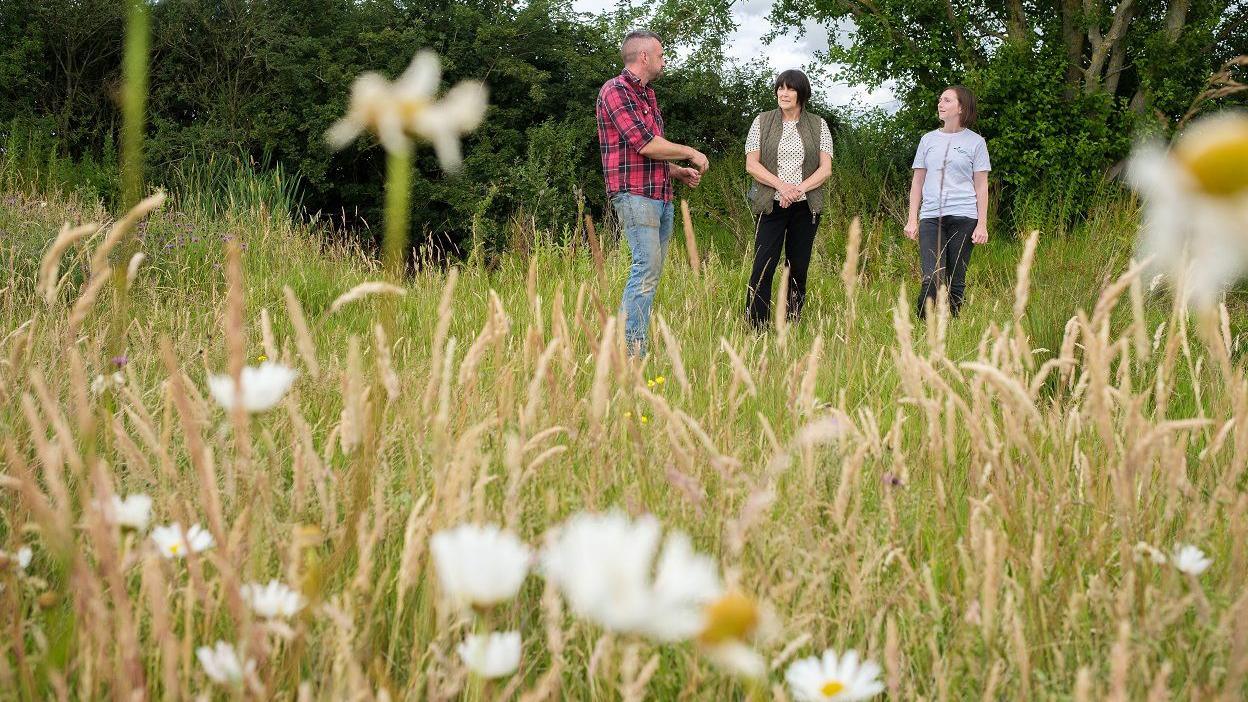
A total of 84 species have been found in the most recent surveys
Kim Hemmings, Anglian Water's catchment advisor, said: "We're really pleased to support Freshwater Habitats with this project, which illustrates how farming and nature can thrive together when we work collaboratively.
"By managing land around our reservoirs more thoughtfully, we can create habitats that support wildlife and build resilient farming systems which brings clean water to our reservoir."
Get in touch
Do you have a story suggestion for Northamptonshire?
Follow Northamptonshire news on BBC Sounds, Facebook, external, Instagram, external and X, external.
- Published9 March 2023

- Published10 October 2024
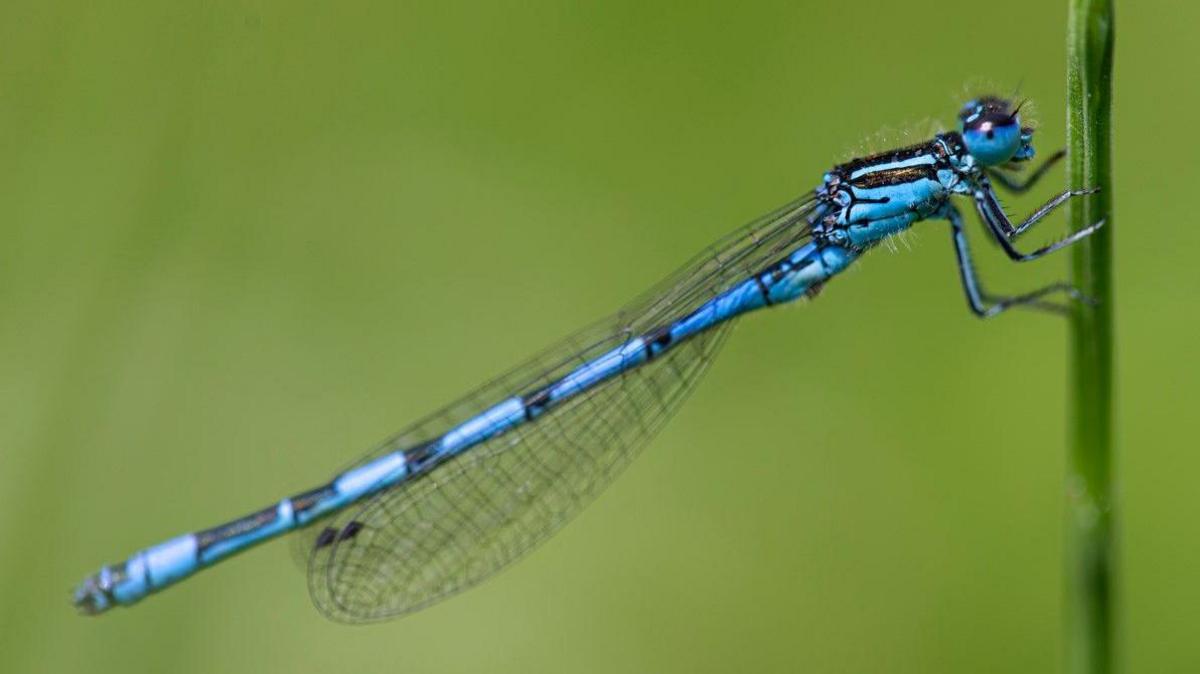
- Published26 September 2020
